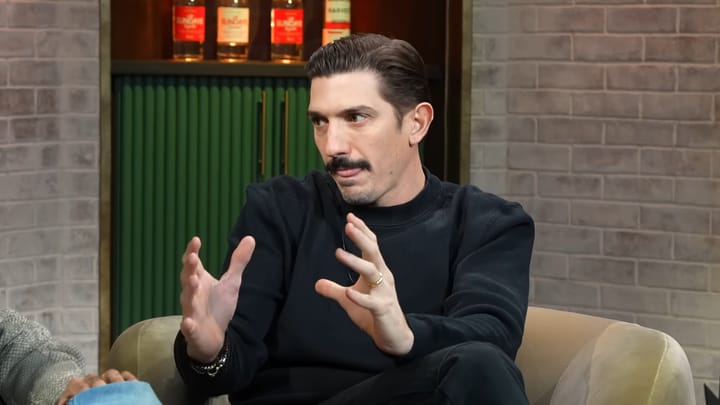Church
Comedy clubs just keep spreading Covid.

Well, here’s what’s new in comedy.
Two New York City comedy venues, Stand Up NY and Tiny Cupboard, have rebranded as religious organizations to avail themselves of the state’s rule allowing indoor religious activities. To state the obvious, these venues are not exploiting a loophole in the rules, they’re just breaking them. The State Liquor Authority’s prohibition of live comedy may not apply to establishments without liquor licenses, but performing arts activities are still excluded from the state’s reopening guidelines for low-risk arts and entertainment businesses. (Why? Because they’re high-risk.) While both venues promise their “services” will be safe, these promises are undermined by the ruse itself, which purports to respect the letter of the law while transparently violating its spirit.
Stand Up NY’s first “Evening of Joy & Laughter” last night—at a church that isn’t holding in-person worship right now—began with a brief sermon by the pastor before a club representative asked if everyone was ready for a comedy show. (In tweets to me after this newsletter was published, the club’s owner, Dani Zoldan, acknowledged he’s breaking the rules, and said he believes scaling the program upward to make thousands of dollars a month is worth putting lives at risk.) Tiny Cupboard is skipping the “church” part altogether and instead just renting out a commercial space. The owners told me they’re not doing it for money, but as part of their mission "to bring people together in real life.”
I might be reporting on this elsewhere next month, so right now I’ll just do some of my classic editorializing: this shit makes my fucking head hurt. The justification trotted out again and again is that people need joy and community in these difficult times. It seems self-evident to me that anyone comfortable attending live indoor comedy right now, as the virus spreads uncontrolled, is probably also finding joy and community elsewhere. (Also, the whole idea is that we have to sacrifice in-person gatherings now so we can be alive for them later!) The other line is that comics need income. From what I could make out on Stand Up NY’s live stream, there couldn’t have been more than 20-25 people at the show, with another dozen watching remotely (at least until I dipped out halfway through). At $20 for a ticket and $5 for online access, I’m gonna go ahead and say there are safer ways to make 500 bucks.
The problem with clubs operating outside the rules is that they’re operating without any rules. In last night’s Evening of Joy & Laughter, comics stood at varying distances from the audience. The host didn’t use a microphone cover, the first comic did, and the second joked that she’s “too much of a rock star” to use one, before clarifying that it’s okay because she already had Covid-19. (You can get it twice, and it’s unknown whether you can transmit it while being immune yourself.) Mandatory audience masking is great, but it does nothing to address the risk of unmasked comics rotating through the same patch of air, the added risk of those comics going off to do other shows with unmasked audiences, and the added added risk of whatever else everyone involved does before or after the show, for instance, dining at a restaurant. As numerous health experts have told me about Covid-19, there is no safe when it comes to indoor gatherings, only safer. Comedy venues are making their patrons a false assurance that safer is safe enough.
I am sorry for devoting so much space in this newsletter to the obvious fact that indoor comedy is a public health risk, but I honestly feel obliged by the utter silence everywhere else. EastVille is still doing illegal indoor shows. So is The Stand. The Comedy Cellar is letting comics go up in its restaurant. Then there’s the rest of the country, where clubs and comics are lawfully but unethically inviting scores of people to gather indoors without masks. Does anyone give a shit?
There’s a popular line right now that government failures are to blame for recklessly individualistic responses to the pandemic. I tend to think this is true in a descriptive sense—one thing obviously leads to the next—and it’s a fair reason not to shame individual acts of recklessness. I’m not so sure it’s true in a normative sense. It seems to me the state’s (horrendous!) failures make it even more incumbent on all of us to look after each other. They do not relieve us of our duties to the collective, they do not justify the promotion of dangerous behavior, and they certainly do not make it conscionable to jeopardize countless lives for an art form that is only so essential to so many people because it’s easy to make and consume remotely.
There are other ways. There are safer ways. There are, dare I say, more profitable ways. It’s an embarrassment that so many supposedly creative people can imagine no better solution than to lie, cheat, and put everyone else at risk.
What else?
-I enjoyed this interview with author/critic Lauren Oyler:
Shouldn’t we cut writers some slack because it’s hard?
It depends on what kind of book it is. As a critic your responsibility is to assess what the author is intending to do, whether that’s a good aim, and then if they executed it well. There are two types of bad books. One, your aim is completely stupid and misguided, and you should not have written a book that attempted to do that. Two, and this is more common in my world, you had this nice aspiration that you did not remotely execute. Yes, writing is very hard, and no book really lives up to its aspirations, but once you’re an adult you can’t be writing bad books all over the place. People might read them! It’s not your right to be a writer. It’s not your right to be read. It’s not your right to be a public figure. A just society is one where everyone has a home, food, healthcare, an education, and vacation for four weeks a year. A just society does not mean everybody gets to be a celebrated writer if they want to be. If we consider literature important, we have to critique it rigorously.
-I thought this interview with Whitney Cummings was interesting too, for reasons I’ll get into behind the paywall:
I know you need to find where the line is to be a comedian—to push up against it and even cross it to test and fine-tune your material. But if there’s “cancel culture” then what’s happened to Jeff Ross?
That’s a great question, and I don’t know. That’s one where it’s hard to tell because we’re in a pandemic, so we don’t know who would be getting jobs or who would be touring, because nobody’s touring or really working, so it’s a really weird time. But it was interesting to watch the comedy community kind of…
There seemed to be a collective shrug, which is crazy to me. That article didn’t seem to really hit as hard as I thought it should have.
You also have to have a certain amount of fame to be canceled, so it’s this weird thing of: How do you cancel someone who isn’t super famous? And why are we only canceling people who are super famous? Since power is relative, can you only cancel someone who’s super famous?
I mean, I would say Jeff Ross is about as famous as Chris D’Elia.
Really? The answer is: I don’t know. As comedians, it’s our job to advertise our flaws. We are scumbags. We admit it. We go onstage, say we’re a scumbag and piece of shit, and then when it’s revealed that we did all those things people get mad at us. So when it comes to minors and rape, that’s never acceptable and never OK, but expecting comedians to be perfect? That’s not what we do. We didn’t sign up for that. That was never our job. We advertise our mistakes. We hate ourselves! You don’t need to cancel us! Nobody hates us more than us. You don’t think we’re funny? We agree! So it’s this fascinating thing.
-Allow me to recommend Charles Gould’s short film Flex, directed by Matt
Porter.


